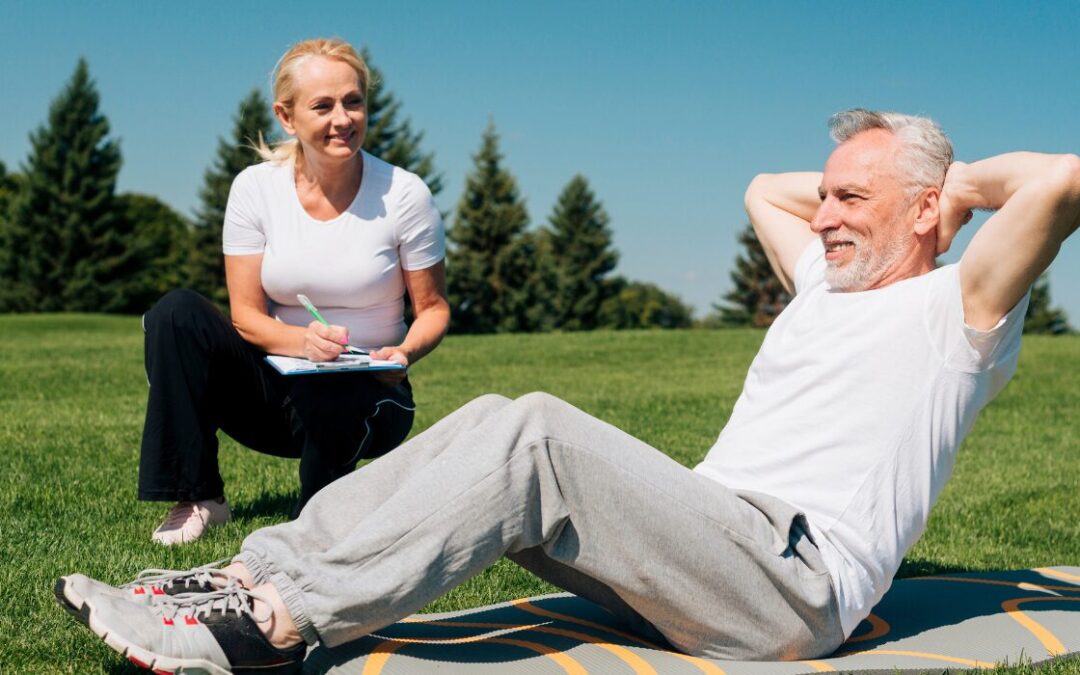Aging is a natural part of life. But staying active, feeling energetic, and maintaining good health doesn’t have to fade with the years. Growing older can be a time to prioritize wellness and live fully, especially with the right habits in place.
In this article, we’ll offer actual and useful health tips for older adults. Specifically, from staying physically active to maintaining emotional wellness, these tips are meant to help you age with strength, confidence, and vitality.
Stay Physically Active — Move in Ways That Work for You
One of the greatest things for seniors to do is get moving. Regular exercise keeps muscles strong, maintains the flexibility of the joints, and avoids chronic diseases like heart disease and diabetes.
Key Points:
- The CDC recommends a minimum of 150 minutes of moderate physical activity per week in individuals over age 65.
- Homestyle dancing, gardening, swimming, or simply walking are all great choices.
- Add strength exercises every other week to maintain balance and prevent falls.
Short daily walks will improve blood flow and elevate mood. It is not intensity, but consistency.
Eat Balanced Meals — Focus on Nutrient-Rich Foods

Diet is a greater issue with advancing age. Hunger is lower, but the body still needs a constant supply of vitamins and minerals.
Try to:
- Add calcium and vitamin D for strong bones (dairy foods, green vegetables, or breakfast cereals fortified)
- Drink plenty of water, even if you don’t feel like it most of the time
- Reduce processed foods, sugar, and salt as much as you can.
Healthy food also helps in healthy weight, heart health, and energy for remaining active during the day.
Make Sleep a Priority — Quality Matters More Than Hours
Sleeping habits vary with age, and most older people sleep fewer nights or wake up more nights. Poor sleep can lead to problems related to memory, mood, and overall health.
Improving sleep:
- Set a regular sleeping routine
- Avoid lights and screens in the evening.
- Avoid caffeine and heavy meals near bedtime
- Create your bedroom as an efficient, chilly sleeping place
Should you be perpetually tired or having trouble sleeping, it’s best to inform your physician.
Schedule Regular Checkups — Prevention Saves Lives
Regular doctor visits can catch issues early and monitor chronic disease. Even when healthy, regular checkups are a great means of remaining healthy.
Routine screenings can include:
- Blood pressure, cholesterol, and diabetes
- Men’s colorectal and prostate cancer screening
- Women’s mammograms and bone density
- Vision and hearing tests
Keeping current on vaccines (e.g., flu, shingles, or pneumonia) is also the focus of long-term protection.
Keep Your Mind Engaged — Mental Fitness Is Key
Mental functioning is as valuable as physical health. Keeping your mind active reduces the risk of memory loss and promotes overall health.
Tips to keep your mind active:
- Read frequently or go to a book club
- Acquire new information, i.e., a hobby or a second language
- Do puzzles or mind games
- Remain socially engaged with family or friends
For example, older people who remain mentally and socially active slow the decline in mental capacity, as research has indicated.
Stay Connected — Social Health Matters
Loneliness affects not just mental but also physical well-being in a major way. Research links the social isolation of older people with higher risks for depression and even heart disease.
Ways to stay connected:
- Call or video call with friends and relatives regularly
- Join a neighborhood club or group
- Volunteer or engage in church or senior center activities
Happiness and purpose derive from connections in everyday life.
Focus on Balance and Fall Prevention
Falls are one of the leading causes of injury among older adults, but falls are usually preventable.
Reduce fall risk by:
- Being aware of handrails, non-slip mats, and lighting in your home
- Wearing supportive footwear
- Practicing balance exercises like Tai Chi or yoga
- Having your eyes and medications checked regularly
Being balanced and strong not only guards against injury but also builds confidence in everyday life.
Conclusion
Aging isn’t slowing down—it’s getting your mind and body in tip-top shape. Moreover, these healthy aging tips are adaptive, powerful, and are sure to add value to your life.
Whether it’s becoming more active, consuming healthier foods, or staying socially engaged, small changes make a big difference. Take it one step at a time, and choose simple habits. Ultimately, it’s not perfect—it’s progress toward living an active, healthy, and independent life for a lifetime.
FAQ’s
How much exercise should older adults aim for each week?
Two days of muscle-strengthening exercise and at least 150 minutes of moderate physical activity per week are recommended for older adults.
What is the best diet for older adults?
A high-fiber diet with protein, fruit, vegetables, whole grains, and low-fat milk gives energy and overall well-being.
How can older adults improve mental sharpness?
In addition, being physically active, reading, learning new things, and doing brain exercises or puzzles can all help keep one’s mind sharp.
Why is fall prevention important for seniors?
Falling is one of the leading causes of injury among older adults. However, some simple changes at home and a balanced program can be very effective in preventing it.

